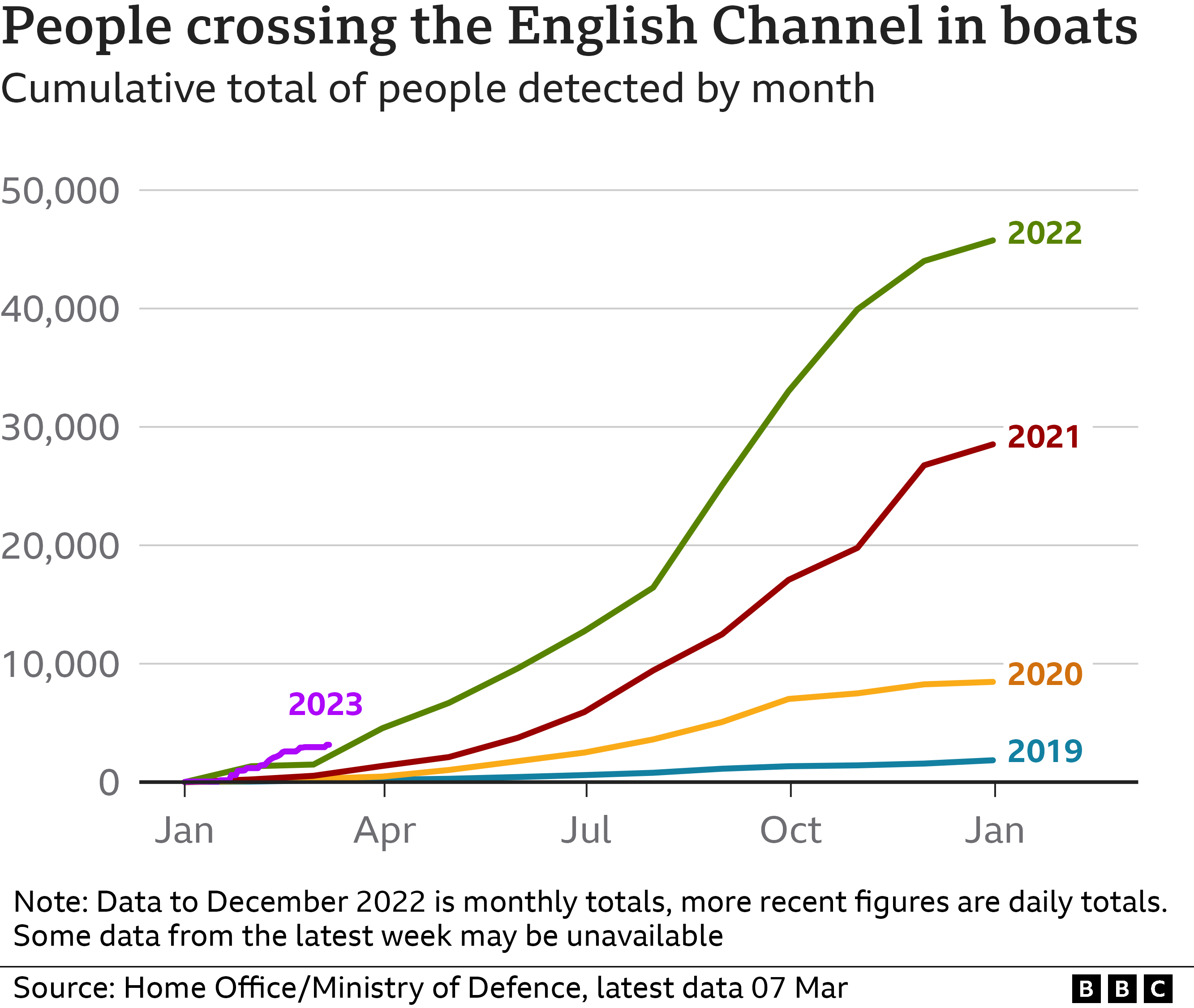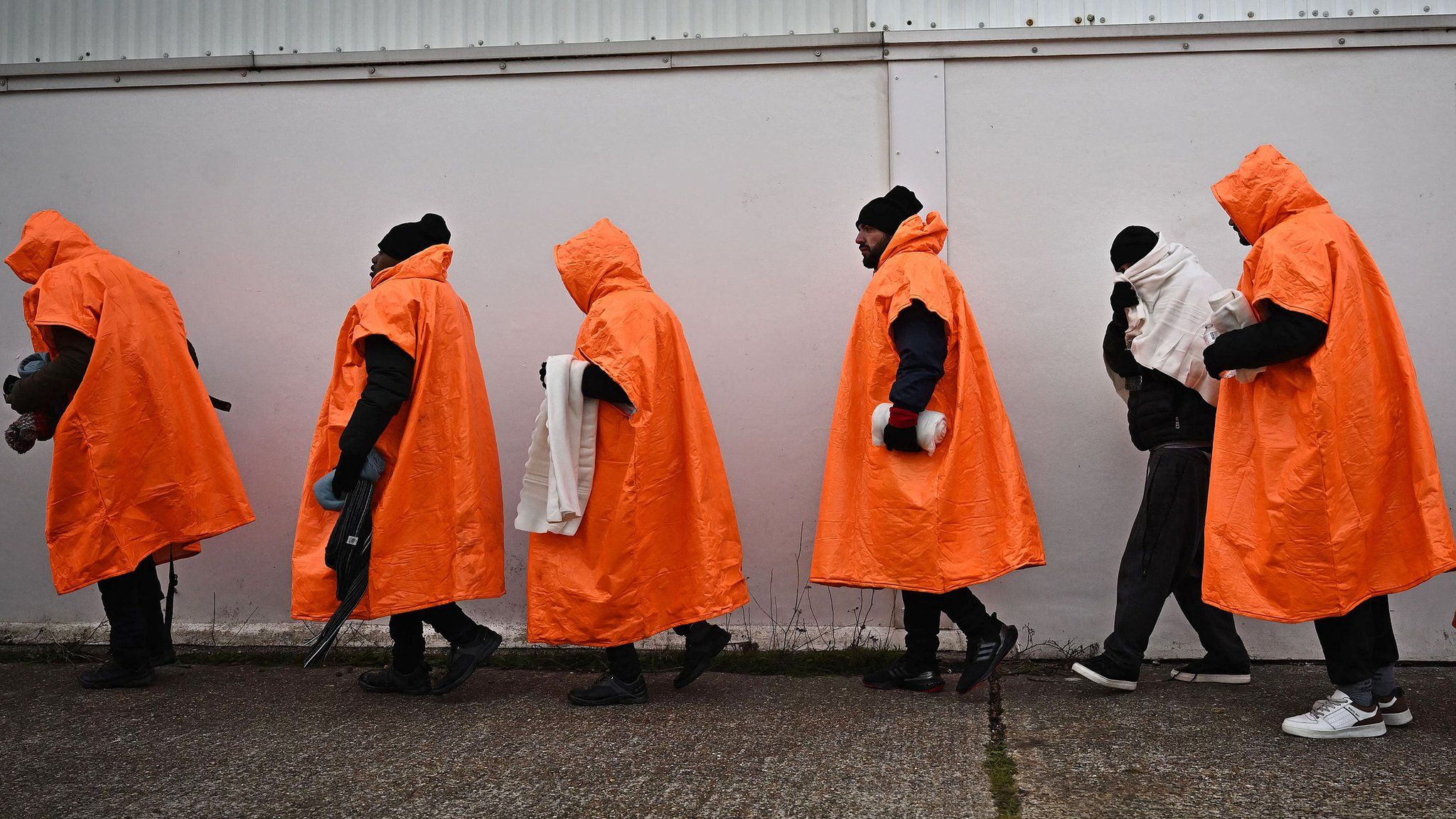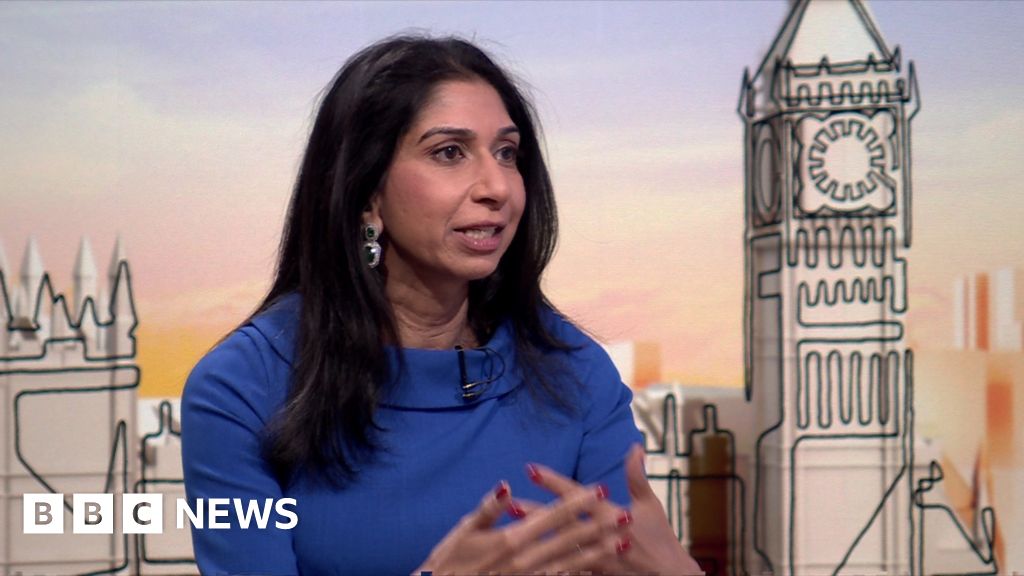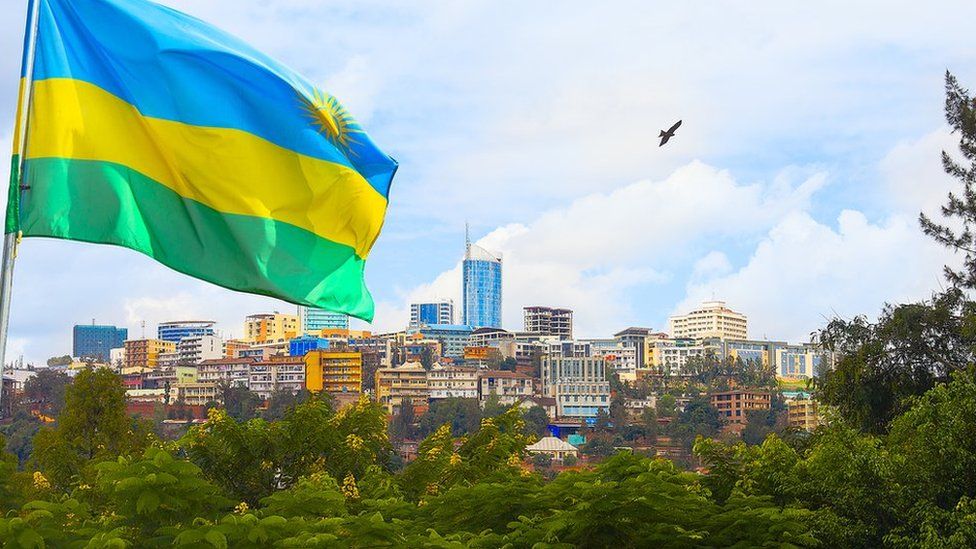This video can not be played
To play this video you need to enable JavaScript in your browser.
Suella Braverman has insisted Rwanda is a safe country for migrants, despite evidence that 12 Congolese refugees were shot dead by police there in 2018.
When presented with the evidence on the BBC’s Sunday with Laura Kuenssberg programme, the home secretary said she was “not familiar” with the case.
The government plans to send some migrants to Rwanda if they arrive in the UK through illegal routes.
The High Court has found Rwanda to be safe, Ms Braverman said.
But she acknowledged the plans were still facing a legal challenge.
She also refused to commit to a date for achieving the government’s goal of stopping small boats crossing the Channel.
And it was also notable that Ms Braverman would not repeat her previously stated hope of getting legal immigration under 100,000 a year – not least because there is tension in the cabinet over what is realistic.
Under the government’s Rwanda proposals, people who arrive in the UK through illegal routes could be sent to Rwanda on a one-way ticket to claim asylum there.
In December the High Court ruled the plan was legal, but the decision is currently going through an appeals process.
Ms Braverman was presented with evidence from the United Nations refugee agency that a group of Congolese refugees were shot dead by Rwandan police during protests over cuts to food rations.
The Rwandan government have said the actions of the police were a last resort and that there was violence at the protest.
The home secretary said: “That might be 2018, we’re looking at 2023 and beyond.
“The High Court, senior expert judges, have looked into the detail of our arrangement with Rwanda and found it to be a safe country and found our arrangements to be lawful.”
She added that Rwanda has “a track record of successful resettling and integrating people who are refugees or asylum seekers” and that the government’s legislation made provisions for “extreme circumstances”, where there is “unforeseeable, serious and irreversible harm”, for individuals to challenge the decision to send them to Rwanda.
Last month several papers reported that a source in the Home Office had claimed there were plans to get flights to Rwanda off the ground by the summer.
But the government has not committed to a timeframe publicly.
Ms Braverman said she believed the Rwanda policy would have “a significant deterrent effect” so that people would stop making the journey across the Channel to the UK.
Prime Minister Rishi Sunak has made stopping small boats crossing the channel one of his top priorities.
The home secretary refused to commit to a date for achieving this goal.
She said she wanted to deliver on the pledge as quickly as possible but said the government could not control timeframes for an ongoing legal challenge over the Rwanda policy.
“There’s a hearing later this month, we need to wait for the court to adjudicate,” Ms Braverman said. “I can’t control court deadlines and therefore we will respect any decision from the court but we have to abide by the timelines set by the judges.”
Labour’s shadow communities secretary Lisa Nandy said the Rwanda policy was “a con trick being perpetrated on the British people”, as it would most likely never materialise.
She added that it had cost the taxpayer “a huge amount of money and hasn’t seen a single person go to Rwanda”.
The Liberal Democrats said Ms Braverman’s comments showed that the Rwanda plan was “unworkable” and “on hold”.

The government has recently introduced new legislation that would place a duty on the home secretary to detain and remove those arriving in the UK illegally, either to Rwanda or another “safe” third country.
People removed from the UK would be blocked from returning, or seeking British citizenship in future.
The legislation is currently making its way through Parliament but still needs to be approved by MPs and peers.
Last October, the home secretary said her “ultimate aspiration” was to get net migration down into the tens of thousands.
Pressed repeatedly on whether she still wanted this to happen, she said: “I support our manifesto commitment to get overall migration numbers down, including legal migration.”
She added that the large numbers coming to work and study in the UK put pressure on housing, schools and health services.
“Those are reasonable concerns and we need to make sure we’re getting the balance right of encouraging our domestic workforce back into the labour market and also ensuring that we do allow those highly skilled workers, those people who will come and help various sectors in our economy to thrive,” she said.
Last year, UK net migration hit a record high of 504,000.
Related Topics
-
-
3 days ago

-

